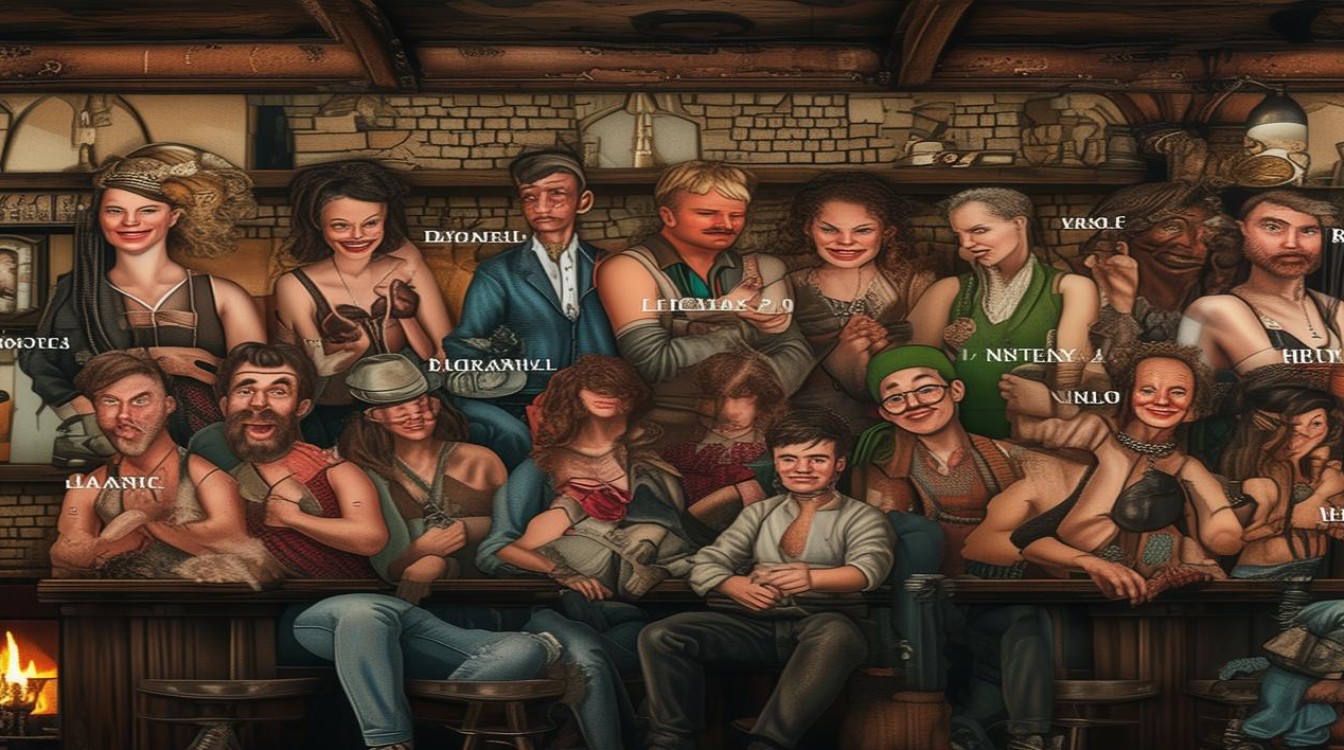The British are known for their unique cultural identity, shaped by history, tradition, and social norms. Their personality traits can be fascinating to explore, especially through specific English words that capture their essence. Whether you're learning English, planning to visit the UK, or simply curious about British culture, these words provide insight into what makes the British who they are.

Reserved – The Art of Politeness and Restraint
One of the most defining characteristics of the British is their reserved nature. Unlike cultures where open displays of emotion are common, Brits often maintain a polite distance. This doesn’t mean they are unfriendly—rather, they value personal space and subtle communication.
For example, a British person might say, "I’m afraid that might be a bit difficult," when they actually mean "No, that’s impossible." Their indirectness helps avoid confrontation, making social interactions smoother.
Dry Humour – Wit and Sarcasm as a National Pastime
British humour is legendary, often relying on irony, understatement, and sarcasm. The term "dry humour" perfectly encapsulates this style—delivered with a straight face, leaving the listener to catch the joke.
A classic example:
"The weather’s lovely today," said while standing in pouring rain.
This humour reflects a cultural tendency to laugh at life’s absurdities rather than complain. It also serves as a way to bond, as those who "get it" are instantly part of the in-group.
Stiff Upper Lip – Emotional Resilience in Tough Times
The phrase "stiff upper lip" describes the British tendency to remain calm and composed, even in difficult situations. Historically linked to wartime resilience, this trait still influences modern attitudes.
Rather than expressing distress openly, many Brits prefer to carry on without fuss. This can sometimes be misinterpreted as coldness, but it’s more about maintaining dignity under pressure.
Self-Deprecation – The Art of Downplaying Achievements
British people often downplay their successes, using humour to avoid seeming boastful. Saying "Oh, it was nothing really" after accomplishing something impressive is common.
This trait stems from a cultural dislike of arrogance. Modesty is valued, and excessive self-promotion can be seen as distasteful.

Queuing – A National Obsession with Order
Few things are as sacred to the British as the queue. Cutting in line is considered a serious social offence, and even in chaotic situations, Brits will instinctively form an orderly line.
This reflects a broader cultural emphasis on fairness and patience. The unspoken rule is: wait your turn, and everything will run smoothly.
Tea – More Than Just a Drink, a Social Ritual
The British love for tea goes beyond caffeine—it’s a cultural institution. Offering tea is a gesture of hospitality, and taking a tea break is a way to pause and regroup.
Phrases like "Put the kettle on" or "Fancy a cuppa?" are deeply ingrained in daily life. Whether celebrating good news or comforting someone in distress, tea is the universal solution.
Politeness – The Power of "Please," "Thank You," and "Sorry"
British politeness is almost ritualistic. Saying "sorry" when someone bumps into you is standard. Overusing pleasantries might seem excessive to outsiders, but it’s a way to maintain social harmony.
Even complaints are delivered politely:
"Excuse me, I think there might have been a slight mistake with my order" instead of "You got my order wrong!"
Eccentricity – Embracing the Quirky and Unconventional
From bizarre hobbies to unusual fashion choices, the British have a soft spot for eccentricity. The word itself—eccentric—is often used affectionately to describe someone who defies norms in a charming way.
This tolerance for individuality is part of what makes British culture so vibrant. Whether it’s a village obsessed with cheese-rolling or a nobleman who wears Hawaiian shirts to formal events, eccentricity is celebrated.
Understatement – Saying Less, Meaning More
The British have a knack for understatement. A massive disaster might be described as "a bit of a bother." This linguistic habit reflects a cultural preference for avoiding drama.

For example:
"It’s rather chilly today" = "It’s freezing!"
"He’s not exactly a genius" = "He’s incredibly dense."
Fair Play – A Deep-Rooted Sense of Justice
The concept of "fair play" is central to British values. Whether in sports, business, or everyday life, there’s an expectation that rules should be followed and everyone deserves a fair chance.
This attitude influences everything from workplace ethics to political debates. Cheating or exploiting loopholes is frowned upon, reinforcing a collective respect for integrity.
Pub Culture – The Heart of Social Life
The British pub is more than just a place to drink—it’s a community hub. The word "pub" (short for public house) highlights its role as a social equalizer, where people from all backgrounds gather.
Conversations flow easily, and strangers might strike up a chat over a pint. Unlike bars in some cultures, British pubs encourage relaxed, long-form socializing rather than loud, fast-paced partying.
Stoicism – Enduring Without Complaint
Linked to the "stiff upper lip" mentality, stoicism is about enduring hardship without making a fuss. The British often pride themselves on handling adversity with quiet determination.
During challenging times, phrases like "Keep calm and carry on" or "Mustn’t grumble" capture this mindset. It’s not about ignoring problems but facing them with resilience.
The "Not Bad" Mentality – Reluctance to Over-Enthuse
When a British person says something is "not bad," it might actually mean "really good." Over-enthusiasm is often tempered to avoid seeming insincere.
For example:
"How was your holiday?"
"Not bad, thanks." (Translation: "It was amazing!")

This linguistic habit keeps expectations in check and prevents disappointment.
Class Consciousness – Subtle but Persistent Social Layers
Though modern Britain is more egalitarian, subtle class distinctions still exist. Accents, education, and even vocabulary can signal social background.
Words like "posh" (upper-class) or "common" (working-class) reflect these nuances. However, Brits often mock class pretensions, showing a love-hate relationship with social hierarchies.
The British "Apology" – Even When Not at Fault
Saying "sorry" is almost reflexive, even when no apology is needed. Bumping into a chair? "Sorry." Someone steps on your foot? "Sorry."
This isn’t about admitting guilt—it’s a social lubricant to keep interactions smooth. It also serves as a way to diffuse tension in awkward situations.
Final Thoughts
British personality traits are a mix of restraint, humour, resilience, and a deep respect for social norms. These English words don’t just describe behaviours—they reveal cultural values that have shaped the nation. Whether it’s the dry wit, the love of tea, or the unshakable queue etiquette, these traits make British culture distinct and endlessly intriguing.

